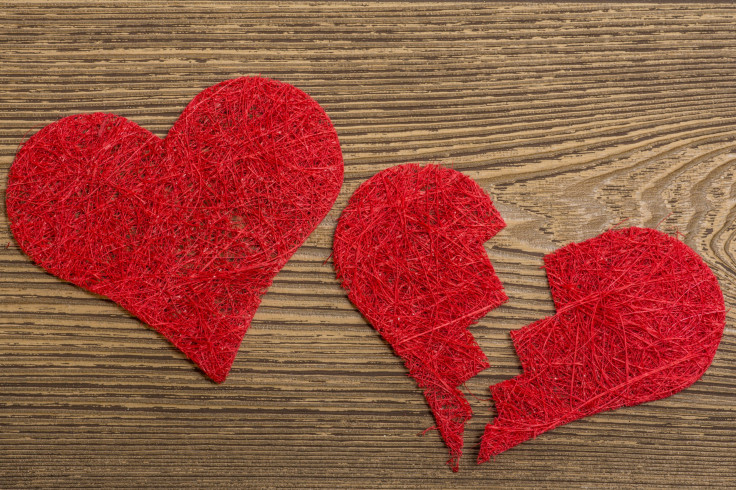Getting Over A Breakup May Be Harder For Women, But They Still Recover Faster Than Men

Breakups are rough. There are the boxes of stuff to return, awkward interactions with friends, and the deletion of heart-eyed emojis listed next to your former flame's called ID. While everyone reacts a little differently when they split up with someone, a new study from Binghamton University suggests there are actually patterns among the two sexes.
Researchers asked 5,705 participants from across 96 countries to rate the physical and emotional pain of a breakup on a scale of one (none) to 10 (unbearable). They found that women were more likely to experience higher levels of both physical and emotional pain, averaging a score of 6.84 in terms of emotional anguish and 4.21 for physical pain. This was compared to the men’s respective scores of 6.58 and 3.75.Though women were hit hardest, emotionally and physically, they tended to recover more fully and come out stronger than their male counterparts. Men, on the other hand, don’t seem to recover — they just move on. According to lead study author Craig Morris, a research associate at BU, these differences stem from biology.
"Put simply, women are evolved to invest far more in a relationship than a man," Morris said in a press release. "A brief romantic encounter could lead to nine months of pregnancy followed by many years of lactation for an ancestral woman, while the man may have 'left the scene' literally minutes after the encounter, with no further biological investment. It is this 'risk' of higher biological investment that, over evolutionary time, has made women choosier about selecting a high-quality mate. Hence, the loss of a relationship with a high-quality mate 'hurts' more for a woman."
Conversely, as men evolved to compete for the romantic attention of women, Morris said the loss of a mate for a man may not “hurt” as much at first. Instead, he's likely to feel the loss once it starts to sink in, in which he'll have to start competing for a new partner.
Morris cited most people will experience an average of three breakups by age 30, and at least one will affect us strongly enough to substantially decrease our quality of life for weeks or even months.
"People lose jobs, students withdraw from classes, and individuals can initiate extremely self-destructive behavior patterns following a breakup," he said. "With better understanding of this emotional and physical response to a breakup — Post Relationship Grief — we can perhaps develop a way to mitigate its effects in already high-risk individuals."
Recently dumped yourself? We've got the simple steps you need to get over a breakup right here.
Source: Morris C, et al. Quantitative Sex Differences in Response To The Dissolution Of A Romantic Relationship. Evolutionary Behavioral Sciences. 2015.



























